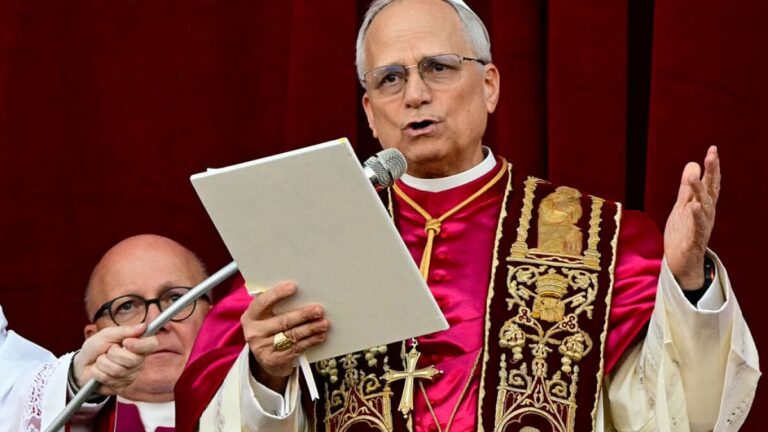The choice of name of a new Pope has symbolism for the values he wishes to emulate, in recognition of the most pressing problems he sees as the leader of the Catholic Church.
For Pope Leo XIV, artificial intelligence is in the heart of his name choice.
Born in Robert Francis Prevost, the new Pope chose the papal name in reference to Pope Leo XIII (1810-1903) who presided over the duration of the Catholic Church the industrial revolution, which marked the beginning of mass social agitation. Pope Leo XIV sees the rise of AI as a similar moment of rapid social change.
Holy Smoke, Internet is obsessed with the papal conclave
In his direction to the College of Cardinals on Saturday, Leo XIV explained his name choice, explicitly mentioning the parallels of these two cataclysmic epochs:
Higher mashable stories
Feeling that I called me continuously on this same path, I chose to take the name of Leo XIV. There are different reasons for this, but mainly because Pope Leo XIII in his historic encyclical Rerum novarum He addressed the social issue in the context of the first major industrial revolution. In our day, the Church sacrifices to all the treasure of its social education in response to another industrial revolution and the developments in the field of artificial intelligence that raise new challenges for the defense of human dignity, justice and work.
Pope Leo XIII was known for focusing on social inequality and the phase of labor rights in the industrialization period as workers moved away from individual crafts and agricultural work and mass production factories in hard conditions and low wages. However, he also emphasized individual human rights and rejected socialism. In his encyclical or formal letter to the Catholic Church, Leo XIII requested a balance between “the duties and rights of capital and labor”, which is also the subtitle of his Rerum novarum ADDRESS.
For Leo XIV, following the steps of the previous social reformer is a powerful message for the AI industry and its impact on the global workforce.
Modern society has already seen the effects of AI through the employment replacement and the exploitation of data labels. According to the report of World Economic Forums 2025, 41 percent of employers intend to reduce their workforce in favor of car tasks with AI. And the International Labor Organization published a 2024 report that highlights the “invisible work” of the development of AI and low wages and limited protections of these workers.
The Catholic Church has already intervened in other consequences of AI. Pope Francis, the predecessor of Leo, published a message in January 2024, warning about AI as a “distortion of reality by partial or completely false narratives, believed and transmitted as if they were the last.” More recently, the final direction of Pope Francis before dying reflected on the technology that replaces human interaction.
Topics
Artificial intelligence


